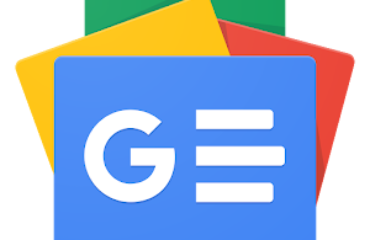
The need for organizations to automate their talent management processes has increased dramatically over the past several years, especially when the COVID-19 pandemic forced companies to implement work-from-home policies. The shift to a predominantly remote workforce made in-person, manual processes difficult, if not impossible.
Talent management software systems enable companies to continue engaging with current, potential and past employees, no matter where they live and work. Talent management software also allows organizations to automate their process and provide self-service options to employees and managers.
Often driven by the HR department and supported by people managers, talent management spans an employee’s entire lifecycle with a company. It includes all the processes, guidelines and systems used to attract, retain, develop and manage employees.
HR and people managers use the tools available to them to meet the human capital needs of the enterprise, including hiring people with the right skill set, training workers on new technologies or tracking employee information throughout an employee’s time with the company.
This article is part of
Download this entire guide for FREE now!
Talent management software refers to all the systems and applications needed to manage the employee lifecycle within an organization. Multiple systems may be part of a company’s landscape, with some offering specific functionality — for example, a core HR system that tracks basic employee data, another system for performance management and a third for learning management. In addition, some HR systems can provide most or all the talent management functionality in one system that provides a common look and feel across all areas of the talent management ecosystem.
Talent management software system features are often categorized by modules, each of which offers specific functionality. A compensation module, for example, is used specifically to manage annual merit and market increases. Though ideal to have a comprehensive package to manage talent, it’s often not possible to implement the whole ecosystem at once. Also, depending on company culture, size, budget, industry and priorities, some of the system functionalities available on the market may not be required.
Following are the modules and some of their key features to consider when selecting talent management software systems. The standard functionality is often similar among vendors, so the focus here is on capabilities that may not be provided by each vendor but can be beneficial within each module.
There’s a plethora of talent management software products to choose from. Some vendors focus on specific niches, while others provide a comprehensive package. Consider these key factors when selecting a talent management platform vendor:
When evaluating an all-in-one package, consider how the vendor enabled its customers to use data across multiple modules. Skills data, for example, might be valuable when used in multiple situations, such as rating employees in performance management, looking for internal candidates to fill open positions and autoassigning development training to employees.
Along these lines, we’ve narrowed the list to the best five talent management software packages that provide support for all or most of an employee’s lifecycle with a company.
This software supports all aspects of talent management, including payroll functions that the company has a long history of providing. Candidates can apply through the applicant tracking module, complete all the new hire forms in the onboarding module, view and update personal information, and manage performance and compensation.
Key features
Similar to Workforce Now, Dayforce supports the entire employee lifecycle, including payroll. Ceridian has spent years making an HR system that supports companies with employees in multiple countries with various currencies.
Key features
Developed for smaller organizations, BambooHR offers many features to support the employee lifecycle, with a UI that’s intuitive to the HR team and employees. The system provides a comprehensive set of features and is easy to integrate with many niche vendors that have pre-built interfaces with BambooHR.
Key features
One of the larger vendors in the HR systems market, the Workday SaaS platform offers a comprehensive and configurable talent management package for domestic and international customers.
Key features
As with Workday, SAP SuccessFactors offers all the functionality needed for talent management under the umbrella of “human experience management.” Targeted at large organizations, the system is configurable and has a consistent look and feel across the platform.
Key features
Whether the choice is a single vendor providing an all-in-one package or multiple vendors offering niche applications, automating the entire talent management employee lifecycle process is imperative for companies juggling remote and hybrid workforces, battling to attract and retain highly skilled talent, and continuing to compete at a high level.
Talent management software provides many advantages in the areas of recruitment, performance management, training and education, and compensation management. Companies can collect, centralize, track, store, report and analyze employee data, while receiving automated reminders and notifications. Prospective and current employees have access to self-service options to complete tasks when convenient, without depending on the HR team or their managers.
How are recruitment and talent acquisition different?
9 keys to a killer recruitment marketing strategy
Employment background checks shift to continuous
6 trends in recruiting technologies
SAP Multi-Bank Connectivity has added Santander Bank to its partner list to help companies reduce the complexity of embedding …
Over its 50-year history, SAP rode business and technology trends to the top of the ERP industry, but it now is at a crossroads …
Third-party support providers make a pitch that they can provide greater flexibility at a lower cost, but customers should think …
With its Cerner acquisition, Oracle sets its sights on creating a national, anonymized patient database — a road filled with …
Oracle plans to acquire Cerner in a deal valued at about $30B. The second-largest EHR vendor in the U.S. could inject new life …
The Supreme Court ruled 6-2 that Java APIs used in Android phones are not subject to American copyright law, ending a …
The data management and analytics tools, including new data sharing and data lake platforms, are designed to let users access …
A new integration with GitLab, a multi-tenant environment and enhancements to the Extense Framework are designed to further the …
New capabilities scheduled for release as part of the vendor’s final two platform updates in 2022 are designed to speed the …
IT administrators must understand the top file sharing security risks and what to do to ensure they don’t create vulnerabilities …
A content strategy that includes headless CMS, useful product information and visuals can draw the customer’s focus to your …
With seemingly endless options to choose from, picking the right paperless office software tool starts with understanding what …
After a year in preview, the database vendor is making its serverless offering generally available. It provides a new …
The database vendor is continuing its effort to evolve the Apache Druid database, developing new capabilities to help users more …
Data quality management tools help organizations automate and fill gaps in data processes from lacking quality to dated analytics…
All Rights Reserved, Copyright 2017 – 2022, TechTarget
Privacy Policy
Cookie Preferences
Do Not Sell My Personal Info




